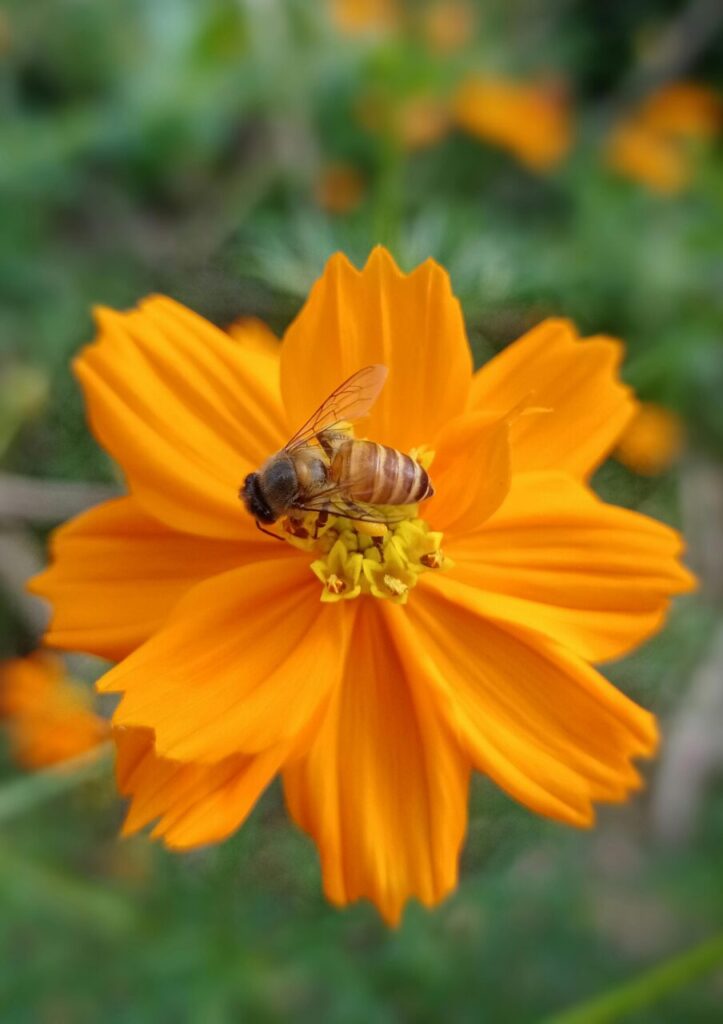Bees play an indispensable role in maintaining healthy ecosystems. From pollinating crops to supporting wild plant growth, their contributions are vital for biodiversity and food security. However, bee populations are in decline due to factors such as habitat loss, pesticide use, and climate change. Understanding their importance and taking action to protect them is critical for a sustainable future.
Why Bees Are Essential to Ecosystems
- Pollination Powerhouses: Bees are primary pollinators for about 75% of global crops, including fruits, vegetables, nuts, and coffee. Without them, food production would suffer dramatically.
- Biodiversity Boosters: Beyond agriculture, bees pollinate wild plants that form the foundation of many ecosystems, supporting wildlife that relies on these plants for food and shelter.
- Economic Contributions: Pollination by bees contributes billions of dollars to the global economy annually.
- Seed and Fruit Production: Many plants depend on bees to reproduce, ensuring seed and fruit availability for various species.

Threats to Bee Populations
- Pesticides: Chemical pesticides, particularly neonicotinoids, disrupt bees’ navigation and foraging abilities, often leading to colony collapse.
- Habitat Loss: Urbanization and intensive agriculture reduce the availability of diverse forage and nesting sites.
- Climate Change: Rising temperatures and changing weather patterns disrupt bees’ life cycles and the flowering schedules of plants they pollinate.
- Diseases and Parasites: Pathogens like the Varroa mite weaken bee colonies, making them more vulnerable to other stressors.
How to Create a Bee-Friendly Environment
- Plant a Bee Garden
- Use native, nectar-rich plants that bloom throughout the year to provide a continuous food source.
- Incorporate herbs like lavender, thyme, and rosemary, which are particularly attractive to bees.
- Avoid Pesticides and Herbicides
- Opt for natural pest control methods like companion planting or introducing predatory insects.
- Reduce or eliminate chemical use, especially during flowering periods.
- Provide Water Sources
- Place shallow dishes with water and pebbles in your garden for bees to drink safely.
- Install Bee Habitats
- Create spaces for solitary bees by using bee hotels or leaving patches of undisturbed soil for ground-nesting species.
- Preserve existing hedgerows and old trees where wild bees might nest.
- Support Local Beekeepers
- Purchase honey and beeswax products from sustainable sources, encouraging practices that protect bee populations.
- Raise Awareness
- Share information about the importance of bees and encourage your community to adopt bee-friendly practices.
Benefits of Protecting Bees
- Stronger Food Systems: With healthy bee populations, agriculture becomes more sustainable and productive.
- Increased Biodiversity: Bees ensure the survival of countless plant and animal species.
- Environmental Resilience: By promoting plant growth, bees help prevent soil erosion and maintain air quality.
Learn also about The Benefits of Local Biodiversity for Personal Gardens
Join the Movement to Save Bees
Supporting bees doesn’t require monumental efforts—small changes in your garden or buying habits can have a significant impact. By creating welcoming spaces for bees and advocating for their protection, you contribute to preserving ecosystems and ensuring food security for generations to come.
Let’s safeguard our buzzing allies and help nature thrive!
Follow Us:
I’m not sure what Area 52 has to do with any of this?